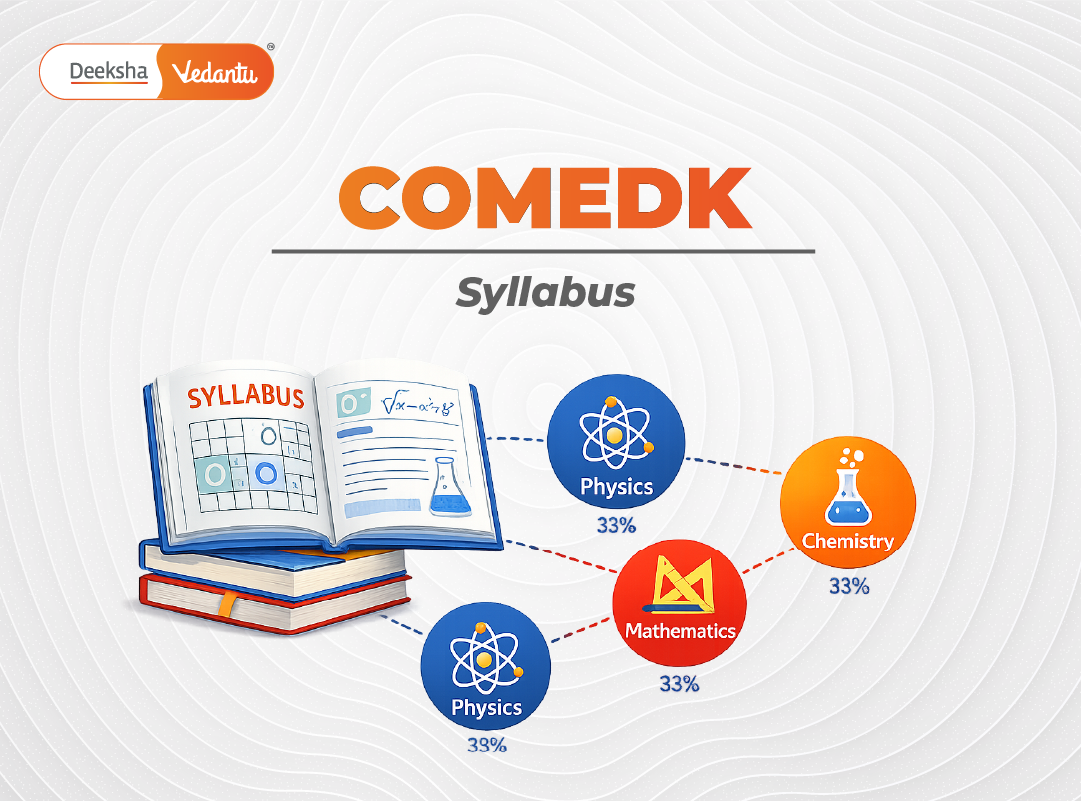If you’re in 10th grade or just graduating from 10th grade and dreaming of a career in engineering, the Joint Entrance Examination (JEE) could be one of the main options to consider. This national level exam is your gateway to some of India’s most prestigious engineering colleges, including IITs and NITs. In this article all you need to know about JEE and how you can aim to score better.
Introduction to JEE
The Joint Entrance Examination (JEE) is an essential gateway for students aspiring to pursue undergraduate engineering programs in India. Here’s a quick walkthrough for your questions on JEE, covering its history, purpose, significance, and other relevant aspects:
Origin and History
- When did it start?: The JEE was first introduced in the early 1960s.
- Who started it?: It was initiated by the Indian Institutes of Technology (IITs) to standardize the admission process into their undergraduate engineering courses.
Purpose and Structure
- What is JEE?: JEE is a two-tier examination comprising JEE Main and JEE Advanced.
- JEE Main is the preliminary exam and serves as a qualifier for JEE Advanced. It is also used for admission into various other engineering colleges like the National Institutes of Technology (NITs) and Indian Institutes of Information Technology (IIITs).
- JEE Advanced is specifically for those who clear the JEE Main and aim to enter the IITs.
Colleges and Opportunities
- Which colleges open up on clearing JEE?: Clearing JEE Main opens up opportunities to study in NITs, IIITs, and several other state and private engineering colleges across India. Scoring well in JEE Advanced paves the way to the prestigious IITs.
Exam Pattern and Syllabus
- The exams cover three core subjects: Mathematics, Physics, and Chemistry.
- JEE Main consists of two papers:
- Paper 1: For B.E./B.Tech courses.
- Paper 2: For B.Arch and B.Planning courses.
- JEE Advanced consists of two mandatory papers, each designed to test a comprehensive understanding of all three subjects.
Trends and Popularity
- Is JEE on the rise?: Yes, the popularity and competitiveness of the JEE have increased significantly over the years. The number of applicants rises each year as more students aspire to enter top engineering colleges.
- The increasing trend reflects the growing interest in engineering and technology careers among Indian youth.
Challenges and Preparation
- JEE is considered one of the toughest entrance exams in the world due to its rigorous syllabus and the high level of competition.
- Students typically begin preparing for the JEE from class 10 or earlier, joining coaching institutes or engaging in self-study to build a strong foundation in the required subjects.
Importance of JEE
- The JEE is not merely an examination but a benchmark for engineering education in India. It assesses a student’s problem-solving skills, understanding of scientific concepts, and readiness for engineering education.
- Clearing the JEE is regarded as a prestigious achievement due to the exam’s difficulty level and the high quality of education offered by the institutions that use its scores for admission.
This detailed overview of the Joint Entrance Examination highlights its crucial role in engineering education in India, its historical roots, structure, and the challenges faced by aspirants. It serves as a comprehensive guide for anyone looking to understand the dynamics of this critical examination.
Subjects & Syllabus for JEE
Before diving into the specific syllabus details for the Joint Entrance Examination (JEE), it’s important to understand the breadth and depth of subjects tested. The JEE is structured to assess a wide range of skills and knowledge across three fundamental subjects: Mathematics, Physics, and Chemistry. Each subject is critical not only for the examination itself but for laying the groundwork for future engineering courses.
The syllabus for each subject in the JEE is meticulously designed to challenge and evaluate the intellectual and problem-solving abilities of the aspirants. Mastery of these areas not only aids in securing a good rank in the exams but also forms a solid foundation for engineering studies. Understanding the detailed structure of each subject’s syllabus will help students prioritize their study and preparation strategy effectively.
Download the PDFs below : (Source: https://jeemain.nta.ac.in & https://jeeadv.ac.in/)
1. Mathematics
Mathematics in JEE is designed to test a candidate’s understanding and application of mathematical concepts through high-level problems. Here’s a detailed overview:
| Topic | Sub-Topics |
| Algebra | Complex Numbers, Quadratic Equations, Sequence and Series, Permutations and Combinations, Binomial Theorem, Matrices, Determinants, Probability, and Statistics. |
| Trigonometry | Trigonometric Ratios, Identities, Equations, Inverse Trigonometric Functions. |
| Coordinate Geometry | Straight Lines, Circles, Parabola, Ellipse, Hyperbola, Coordinate Systems. |
| Calculus | Limits and Continuity, Differentiation, Applications of Derivatives, Integrals, Definite Integrals, Differential Equations. |
| Vector and 3D Geometry | Vectors, Vector Algebra, Lines, Planes in Three-Dimensional Space. |
2. Physics
Physics syllabus aims to assess students’ understanding of basic concepts, their ability to analyze physical problems, and apply problem-solving techniques.
| Topic | Sub-Topics |
| Mechanics | Units and Measurement, Kinematics, Laws of Motion, Work, Energy and Power, Rotational Motion, Gravitation. |
| Thermodynamics | Thermal Properties of Matter, Thermodynamics, Kinetic Theory of Gases. |
| Electricity and Magnetism | Electrostatics, Current Electricity, Moving Charges and Magnetism, Magnetism and Matter, Electromagnetic Induction, Alternating Currents. |
| Optics | Ray Optics, Wave Optics. |
| Modern Physics | Dual Nature of Radiation and Matter, Atoms, Nuclei, Semiconductor Electronics. |
| Oscillations and Waves | Oscillations, Waves. |
3. Chemistry
Chemistry is divided into three sections: Physical Chemistry, Organic Chemistry, and Inorganic Chemistry. Each section targets different conceptual and application-based knowledge.
Physical Chemistry
| Topic | Sub-Topics |
| Some Basic Concepts in Chemistry | Mole Concept, States of Matter, Atomic Structure, Chemical Bonding and Molecular Structure. |
| Thermodynamics | First Law of Thermodynamics, Thermochemical Equations, Second Law of Thermodynamics. |
| Equilibrium | Chemical Equilibrium, Ionic Equilibrium. |
| Redox Reactions and Electrochemistry | Concepts of Oxidation and Reduction, Electrochemical Cells. |
| Kinetics | Rate of Reaction, Factors Affecting Rate, Collision Theory. |
| Surface Chemistry | Adsorption, Catalysis, Colloids. |
Organic Chemistry
| Topic | Sub-Topics |
| Basic Concepts | Hybridization, IUPAC Nomenclature, Isomerism. |
| Hydrocarbons | Alkanes, Alkenes, Alkynes, Aromatic Hydrocarbons. |
| Haloalkanes and Haloarenes | Nature of C-X Bond, Mechanisms of Substitution Reactions. |
| Alcohols, Phenols and Ethers | Properties, Uses, Phenols and Their Reactions, Ethers. |
| Aldehydes, Ketones and Carboxylic Acids | Preparation, Properties, Reactions. |
| Organic Compounds Containing Nitrogen | Amines, Cyanides, Isocyanides, Diazonium Salts. |
Inorganic Chemistry
| Topic | Sub-Topics |
| Classification of Elements and Periodicity in Properties | Modern Periodic Law, Periodic Trends in Properties. |
| Chemical Bonding and Molecular Structure | Kossel-Lewis Approach, VSEPR Theory, Concept of Hybridization. |
| p-Block Elements | Group 13 to Group 18 Elements, General Trends. |
| d and f Block Elements | Transition Elements, Inner Transition Elements. |
| Coordination Compounds | Werner’s Theory, IUPAC Nomenclature, Applications in Qualitative Analysis. |
Preparation Tips for JEE
Preparing for the Joint Entrance Examination (JEE), one of India’s most competitive entrance exams, requires strategic planning, disciplined study habits, and mental fortitude. Here are comprehensive preparation tips to help aspiring engineers tackle JEE effectively:
1. Understand the Exam Format and Syllabus
Start by familiarizing yourself with the JEE’s structure, including JEE Main and JEE Advanced. (Know the difference between JEE Main & JEE Advanced) Understanding the exam format, the types of questions asked, and the detailed syllabus for Mathematics, Physics, and Chemistry is crucial. This knowledge helps in formulating a focused study plan.
2. Create a Realistic Study Plan
A structured study plan is essential. Break down the syllabus into manageable sections and set realistic goals for each study session. Include short breaks and review sessions in your schedule. Allocate more time to subjects or topics you find challenging. Stick to your plan diligently to cover the entire syllabus effectively.
3. Build Strong Fundamentals
JEE questions often test concepts in depth, so a strong grasp of fundamentals is critical. Focus on understanding basic concepts before moving on to complex problems. Along with the detailed curriculum and guides provided by expert faculty at Deeksha, use standard textbooks recommended for JEE preparation like NCERT books for Chemistry and Mathematics, and H.C. Verma for Physics.
4. Practice Regularly
Regular practice is the key to success in JEE. Solve as many sample papers and previous years’ question papers as you can. This practice helps you familiarize yourself with the exam’s pattern and difficulty level, and it improves your speed and accuracy.
5. Focus on Time Management
During your preparation, practice solving questions within a set time limit. Time management is crucial in JEE as you need to attempt a large number of questions in a limited timeframe. Learn to decide quickly whether a question should be attempted immediately or marked for review.
6. Use the Right Study Materials
Selecting the right study materials is crucial for clarifying concepts and ensuring extensive practice. Deeksha’s specially curated notes are designed to help students grasp the fundamental concepts necessary to excel in the JEE. By referring to these notes, students can enhance their understanding and improve their ability to tackle the exam effectively. For those looking to supplement their studies with additional resources, industry-recommended reference books and guides are invaluable. Some of these include:
- Mathematics: ‘Objective Mathematics’ by R.D. Sharma and ‘IIT Mathematics’ by M.L. Khanna.
- Physics: ‘Concepts of Physics’ by H.C. Verma and ‘Fundamentals of Physics’ by Halliday, Resnick, and Walker.
- Chemistry: ‘Organic Chemistry’ by Morrison and Boyd and ‘Concise Inorganic Chemistry’ by J.D. Lee.
These books are widely recognized for their comprehensive coverage of the JEE syllabus and are excellent resources for students seeking deeper insights and additional practice.
7. Join Deeksha for PU + Integrated Coaching
Deeksha offers a comprehensive PU and integrated coaching program tailored for JEE aspirants. With over 25 years of academic excellence, Deeksha is the preferred choice among toppers, boasting more than 70,000 success stories. The institution provides structured learning and expert guidance that is crucial for JEE preparation. Offering a competitive and motivating environment, Deeksha helps keep your preparation on track across its 25+ campuses. If attending regular coaching is challenging, consider Deeksha’s integrated coaching options or other smart courses to ensure you don’t miss out on top-tier educational resources and support.
8. Regular Revision
Regular revision is essential to keep all the concepts fresh in your mind. Revise the topics you have studied at regular intervals. Make concise notes and formula sheets during your preparation, which can be very handy during revisions.
9. Focus on Weak Areas
Identify your weak areas early in your preparation and spend more time improving them. Do not ignore difficult topics. Seek help from teachers or peers if you’re unable to understand certain concepts.
10. Take Mock Tests
Mock tests are crucial as they help gauge your preparation level and simulate the actual exam environment. Analyze your performance in these tests to identify your strengths and areas for improvement. Adjust your study plan based on this feedback.
11. Stay Healthy and Balanced
Maintaining physical and mental health is vital during JEE preparation. Ensure adequate sleep, maintain a healthy diet, and keep some time for physical activities. Stress management is also crucial; engage in relaxation techniques such as meditation or hobbies that help you unwind.
12. Stay Motivated and Positive
Preparing for JEE is a marathon, not a sprint. Stay motivated throughout your preparation journey. Keep a positive outlook and stay away from negativity. Remember, consistent effort is key to cracking JEE.
In conclusion, cracking the JEE requires more than just hard work; it requires smart work and strategic planning. With the right approach, adequate preparation, and mental resilience, you can significantly improve your chances of success in this challenging exam.
JEE Exam Scoring Guide
Understanding the scoring system of the Joint Entrance Examination (JEE) is crucial for candidates preparing for one of India’s most competitive engineering entrance exams. The JEE is divided into two main components: JEE Main and JEE Advanced. Each has its unique pattern, scoring system, and level of difficulty.
JEE Main Scoring System
JEE Main serves as the qualifying exam for JEE Advanced and as the entrance test for various National Institutes of Technology (NITs), Indian Institutes of Information Technology (IIITs), and other centrally funded technical institutions.
- Exam Pattern: The JEE Main comprises two papers. Paper 1 is for admission to B.E./B.Tech programs and is conducted in a Computer Based Test (CBT) format. Paper 2 is meant for candidates aspiring to join B.Arch and B.Planning programs, available in both pen-and-paper and CBT formats.
- Total Marks and Questions: Paper 1 of JEE Main consists of 90 questions, divided equally among Physics, Chemistry, and Mathematics, each subject offering 30 questions. The maximum score for Paper 1 is 300 marks. Each question is of four marks.
- Scoring Mechanism: For every correct answer, candidates earn four marks. There is a penalty of one mark for every incorrect response to discourage guessing. No marks are deducted for unattempted questions.
- Normalization Process: JEE Main scores are normalized to account for variations in the difficulty levels of different shifts of the examination. The normalization process uses a percentile ranking system based on the relative performance of all the candidates appearing in the session.
JEE Advanced Scoring System
JEE Advanced is the second phase of the examination process and is intended for admission into the prestigious Indian Institutes of Technology (IITs).
- Exam Pattern: JEE Advanced consists of two compulsory papers, each containing three sections: Physics, Chemistry, and Mathematics. The format includes multiple-choice questions, numerical answer type questions, and match the following type questions, which test the comprehensive understanding of the student.
- Total Marks: The total marks for JEE Advanced vary slightly each year due to changes in the pattern. However, it typically ranges between 360 to 396 marks. Each paper can score up to 180 to 198 marks.
- Question Count: The number of questions in JEE Advanced can also vary. Each paper usually contains between 54 to 60 questions, with each subject contributing roughly 18 to 20 questions.
What Is Considered a Good Score in JEE?
- For JEE Main: A good score in JEE Main can be subjective and depends on the overall performance levels each year. However, scoring above 250 can typically place a candidate within the top 1,000 ranks, which is generally considered excellent. A score of 150-200 is also competitive and can secure a seat in reputed engineering colleges.
- For JEE Advanced: Due to the higher difficulty level, a good score in JEE Advanced is generally lower compared to JEE Main. Scoring above 50% of the total marks is considered very good in JEE Advanced.
Negative Marking in JEE
Both JEE Main and JEE Advanced have negative marking to penalize guessing. In JEE Main, one mark is deducted for every incorrect answer in the objective-type questions. In JEE Advanced, the negative marking varies according to the question type. Some sections may deduct as many as two marks for a wrong answer, while others may have no penalty for incorrect responses depending on the yearly exam pattern.
Understanding this scoring guide for the JEE exams highlights the criticality of precision and thorough preparation. Given the complexity of the exam and its life-altering potential, breaking down the scoring system helps candidates strategize their study plans effectively. Aspiring engineers should focus not only on securing high marks but also on minimizing incorrect answers to optimize their overall score, leveraging a combination of diligent preparation, consistent practice, and strategic exam-taking techniques.
Message to all graduating from 10th grade
As we conclude this comprehensive article on the JEE subject, syllabus and scoring guide, it’s important for students, especially those graduating from 10th grade, to recognize the importance of a solid and strategic approach in preparation for this rigorous examination. JEE, with its demanding syllabus and competitive nature, requires more than just hard work; it demands smart, well-planned studies and an environment that fosters academic growth.
Joining a program like Deeksha for PU with integrated coaching can significantly influence your success in the PU board exams as well as competitive exams like the JEE. At Deeksha, we understand the dual pressures faced by students and have designed our curriculum to prepare you efficiently for both. With over 25 years of academic excellence, Deeksha not only offers expert guidance but also provides a structured learning environment that enhances your academic journey.
Our integrated coaching method combines regular PU syllabus with competitive exam preparation, making it more synchronized and less burdensome for students. This approach allows students to prepare for their board exams and simultaneously build a strong foundation for JEE. Our methods have been refined through years of experience, and our success stories speak volumes about the effectiveness of our programs.
For students stepping into this crucial phase of their education, remember that the journey is challenging but not insurmountable. With resources like Deeksha, you can navigate your way through these challenges more smoothly. Embrace this time of learning; it is an opportunity to grow, to excel, and to begin shaping your future with confidence. With dedication, the right guidance, and effective preparation strategies, you can indeed aim high and achieve great success in the JEE and beyond.










Get Social